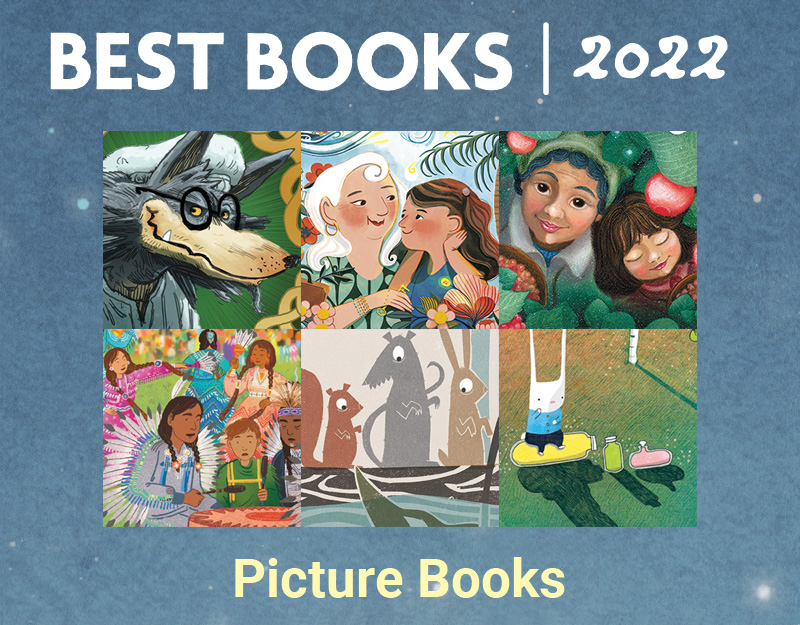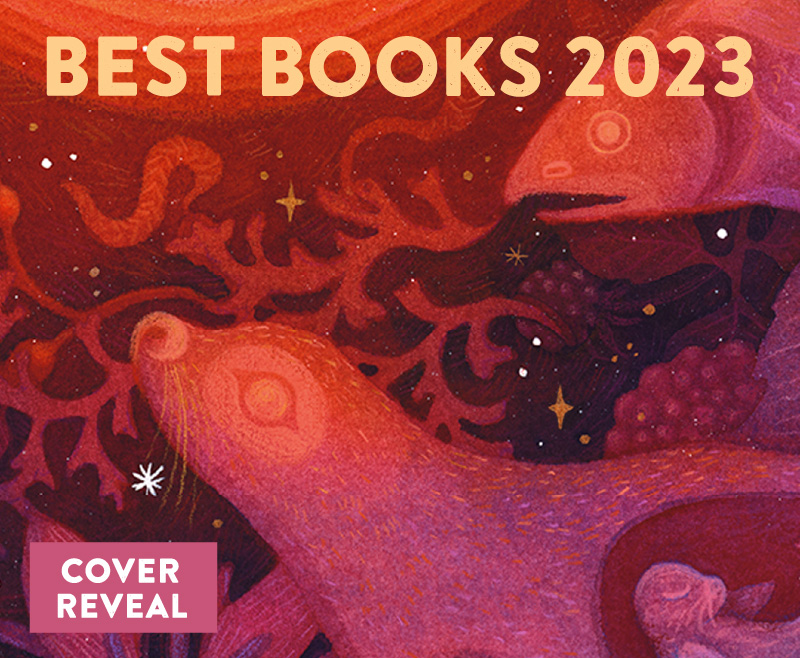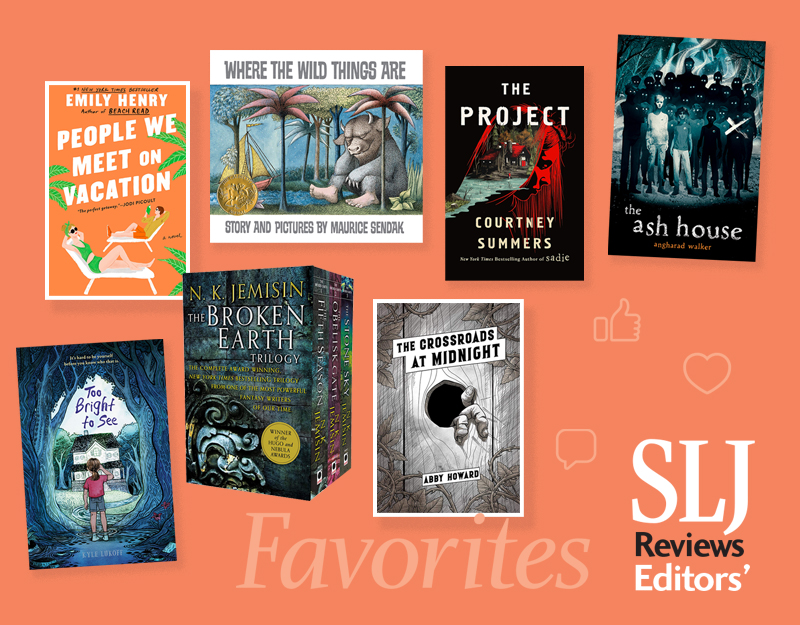Review of the Day: Unusual Chickens for the Exceptional Poultry Farmer
 Unusual Chickens for the Exceptional Poultry Farmer
Unusual Chickens for the Exceptional Poultry Farmer
By Kelly Jones
Illustrated by Katie Kath
Alfred A. Knopf (an imprint of Random House Children’s Books)
$16.99
ISBN: 978-0-385-75552-8
On shelves now
The epistolary novel has a long and storied history. At least when it comes to books written for adults. So too does it exist in novels for children, but in my experience you are far more likely to find epistolary picture books than anything over 32 pages in length. That doesn’t stop teachers, of course. As a children’s librarian I often see the kiddos come in with the assignment to read an epistolary novel and lord love a duck if you can remember one on the spot. I love hard reference questions but if you were to ask me to name five such books in one go I’d be scrambling for my internet double quick time. Of course now that I’ve read Unusual Chickens for the Exceptional Poultry Farmer I will at long last be able to pull at least one book from my crazy overstuffed attic of a brain instantaneously. Kelly Jones’s book manages with charm and unexpected panache to take the art of chicken farming and turn it into a really compelling narrative. Beware, though. I suspect more than one child will leave this book desirous of a bit of live poultry of their very own. You have been warned.
ADVERTISEMENT
ADVERTISEMENT
After her dad lost his job, it really just made a lot of sense for Sophie and her family to move out of L.A. to her deceased great-uncle Jim’s farm. Still, it’s tough on her. Not only are none of her old friends writing her back but she’s having a hard time figuring out what she should do with herself. She spends some of her time writing her dead Abuelita, some of her time writing Jim himself (she doesn’t expect answers), and some of her time writing Agnes of the Redwood Farm Supply. You see, Sophie found a chicken in her back yard one day and there’s something kind of strange about it. Turns out, Uncle Jim used to collect chickens that exhibited different kinds of . . . abilities. Now a local poultry farmer wants Jim’s chickens for her very own and it’s up to Sophie to prove that she’s up to the task of raising chickens of unusual talents.
 There are two different types of children’s fantasy novels, as I see it. The first kind spends inordinate amounts of time world building. They will never let a single thread drop or question remain unanswered. Then there’s the second kind. These are the children’s novels where you may have some questions left at the story’s end, but you really don’t care. That’s Unusual Chickens for me. I simply couldn’t care two bits about the origins of these unusual chickens or why there was an entire company out there providing them in some capacity. What Ms. Jones does so well is wrap you up in the emotions of the characters and the story itself, so that details of this sort feel kind of superfluous by the end. Granted, that doesn’t mean there isn’t going to be the occasional kid demanding answers to these questions. You can’t help that.
There are two different types of children’s fantasy novels, as I see it. The first kind spends inordinate amounts of time world building. They will never let a single thread drop or question remain unanswered. Then there’s the second kind. These are the children’s novels where you may have some questions left at the story’s end, but you really don’t care. That’s Unusual Chickens for me. I simply couldn’t care two bits about the origins of these unusual chickens or why there was an entire company out there providing them in some capacity. What Ms. Jones does so well is wrap you up in the emotions of the characters and the story itself, so that details of this sort feel kind of superfluous by the end. Granted, that doesn’t mean there isn’t going to be the occasional kid demanding answers to these questions. You can’t help that.
I have a bit of a thing against books that present you with unnecessary twists at their ends. If some Deus Ex Machina ending solves everything with a cute little bow then I am well and truly peeved. And there is a bit of a twist near the end of Unusual Chickens but it’s more of a funny one than something that makes everything turn out all right. The style of writing the entire book in letters of one sort or another works very well when it comes to revealing one of the book’s central mysteries. Throughout the story Sophie engages the help of Agnes of the Redwood Farm Supply (the company that provided her uncle with the chickens in the first place). When she at last discovers why Agnes’s letters have been so intermittent and peculiar the revelation isn’t too distracting, though I doubt many will see it coming.
Now the book concludes with Sophie overcoming her fear of public speaking in order to do the right thing and save her chickens. She puts it this way: “One thing my parents agree on is this: if people are doing something unfair, it’s part of our job to remind them what’s fair, even if sometimes it still doesn’t turn out the way we want it to.” That’s a fair lesson for any story and a good one to drill home. I did find myself wishing a little that Sophie’s fears had been addressed a little more at the beginning of the book rather that simply solved without too much build up at the end, but that’s a minor point. I like the idea of telling kids that doing the right thing doesn’t always give you the outcome you want, but at least you have to try. Seems to have all sorts of applications in real life.
ADVERTISEMENT
ADVERTISEMENT
In an age where publishers are being held increasingly accountable for diverse children’s fare, it’s still fair to say that Unusual Chickens is a rare title. I say this because it’s a book where the main character isn’t white, that’s not the point of the story, but it’s also not a fact that’s completely ignored either. Sophie has dark skin and a Latino mom. Since they’ve moved to the country (Gravenstein, CA if you want to be precise) she feels a bit of an outsider. “I miss L.A. There aren’t any people around here- especially no brown people except Gregory, our mailman.” She makes casual reference to the ICE and her mother’s understanding that “you have to be twice as honest and neighborly when everyone assumes you’re an undocumented immigrant…” And there’s the moment when Sophie mentions that the librarian still feels about assuming that Sophie was a child of the help, rather than the grandniece of the Blackbird Farm’s previous owner. A lot of books containing a character like Sophie would just mention her race casually and then fear mentioning it in any real context. I like that as an author, Jones doesn’t dwell on her character’s ethnicity, but neither does she pretend that it doesn’t exist.
 You know that game you sometimes play with yourself where you think, “If I absolutely had to have a tattoo, I think I’d have one that looked like [blank]”? Well, for years I’ve only had one figure in mind. A little dancing Suzuki Beane, maybe only as large as a dime, on the inner wrist of my right hand. I’ll never get this tattoo but it makes me happy to think that it’s always an option. I am now going to add a second fictional tattoo to my roster. Accompanying Suzuki on my left wrist would be Henrietta. She’s the perpetually peeved, occasionally telekinetic, and she makes me laugh every single time I see her. Henrietta’s creator, in a sense, is the illustrator of this book, Ms. Katie Kath. I was unfamiliar with her work, prior to reading Unusual Chickens and from everything I can tell this is her children’s book debut. You’d never know it from her style, of course. Kath’s drawing style here has all the loose ease and skill of a Quentin Blake or a Jules Feiffer. When she draws Sophie or her family you instantly relate to them, and when she draws chickens she makes it pretty clear that no other illustrator could have brought these strange little chickies to life in quite the same way. These pages just burst with personality and we have her to thank.
You know that game you sometimes play with yourself where you think, “If I absolutely had to have a tattoo, I think I’d have one that looked like [blank]”? Well, for years I’ve only had one figure in mind. A little dancing Suzuki Beane, maybe only as large as a dime, on the inner wrist of my right hand. I’ll never get this tattoo but it makes me happy to think that it’s always an option. I am now going to add a second fictional tattoo to my roster. Accompanying Suzuki on my left wrist would be Henrietta. She’s the perpetually peeved, occasionally telekinetic, and she makes me laugh every single time I see her. Henrietta’s creator, in a sense, is the illustrator of this book, Ms. Katie Kath. I was unfamiliar with her work, prior to reading Unusual Chickens and from everything I can tell this is her children’s book debut. You’d never know it from her style, of course. Kath’s drawing style here has all the loose ease and skill of a Quentin Blake or a Jules Feiffer. When she draws Sophie or her family you instantly relate to them, and when she draws chickens she makes it pretty clear that no other illustrator could have brought these strange little chickies to life in quite the same way. These pages just burst with personality and we have her to thank.
Now there are some fairly long sections in this book that discuss the rudimentary day-to-day realities of raising chickens. Everything from the amount of food (yes, the book contains math problems worked seamlessly into the narrative) to different kinds of housing to why gizzards need small stones inside of them. These sections are sort of like the whaling sections in Moby Dick or the bridge sections in The Cardturner. You can skip right over them and lose nothing. Still, I found them oddly compelling. People love process, particularly when that process is so foreign to their experience. I actually heard someone who had always lived in the city say to me the other day that before they read this book they didn’t know that you needed a rooster to get baby chickens. You see? Learning!
I don’t say that this book is going to turn each and every last one of its readers into chicken enthusiasts. I also know that it paints a rather glowing portrait of chicken ownership that is in direct contrast to the farm situation perpetuated on farmers today. But doggone it, it’s charming to its core. We see plenty of magical animal books churned out every year. Magical zoos and magical veterinarians and magical bestiaries. So what’s wrong with extraordinary chickens as well? Best of all, you don’t have to be a fantasy fan to enjoy this book. Heck, you don’t have to like chickens. The writing is top notch, the pictures consistently funny, and the story rather moving. Everything, in fact, a good chapter book for kids should be. Hand it to someone looking for lighthearted fare but that still wants a story with a bit of bite to it. Great stuff.
On shelves now.
Source: Galley sent from publisher for review.
Like This? Then Try:
- The Sasquatch Escape by Suzanne Selfors
- Pip Bartlett’s Guide to Magical Creatures by Jackson Pearce
- The Care and Feeding of Sprites by Holly Black and Tony DiTerlizzi
Other Reviews: educating alice
Professional Reviews: A star from Kirkus
Filed under: Best Books, Best Books of 2015, Reviews, Reviews 2015
About Betsy Bird
Betsy Bird is currently the Collection Development Manager of the Evanston Public Library system and a former Materials Specialist for New York Public Library. She has served on Newbery, written for Horn Book, and has done other lovely little things that she'd love to tell you about but that she's sure you'd find more interesting to hear of in person. Her opinions are her own and do not reflect those of EPL, SLJ, or any of the other acronyms you might be able to name. Follow her on Twitter: @fuseeight.
ADVERTISEMENT
ADVERTISEMENT
SLJ Blog Network
The Moral Dilemma of THE MONSTER AT THE END OF THIS BOOK
K is in Trouble | Review
Fighting Public School Book Bans with the Civil Rights Act
ADVERTISEMENT








DEAR MR. HENSHAW is the one I always think of. But look here! http://nplbookbuddies.blogspot.com/2011/05/epistolary-novels.html
I thought about mentioning HENSHAW but it sort of took my point in an entirely new direction, so I let it go. Nice list link! Some good, if older, titles there.
I have been hatched chickens in my classroom three times now. This seems like a good addition to my chicken library. Thanks.
I should have mentioned it in my review but the book also cites many many other children’s books that feature chickens prominently.
Don’t forget the Klise sisters’ wonderful books, starting with REGARDING THE FOUNTAIN. (And LETTERS FROM CAMP is a great one for summer.)